22 Brain-Boosting Foods You Should Add To Your Diet
Your brain may only weigh about three pounds, but it’s a full-time powerhouse—controlling your thoughts, emotions, movements, and memories all at once. Despite its modest size, it demands a whopping 20% of your daily energy, making what you eat critically important. Like a maestro conducting a complex symphony, your brain needs the right mix of nutrients to perform at its peak. Whether it’s omega-3s building cell membranes or antioxidants shielding your brain from oxidative stress, each nutrient plays a vital role in cognition, focus, memory, and long-term mental health. That’s why we’ve expanded our list to 22 essential nutrients that support optimal brain function—from powerhouse vitamins and minerals to amino acids and healthy fats. These brain-boosting nutrients can elevate your focus, sharpen your thinking, and even help protect against age-related decline. Ready to feed your mind? Let’s dive into the ultimate menu for mental clarity and cognitive vitality.
1. Omega-3 Fatty Acids: The Brain's Building Blocks
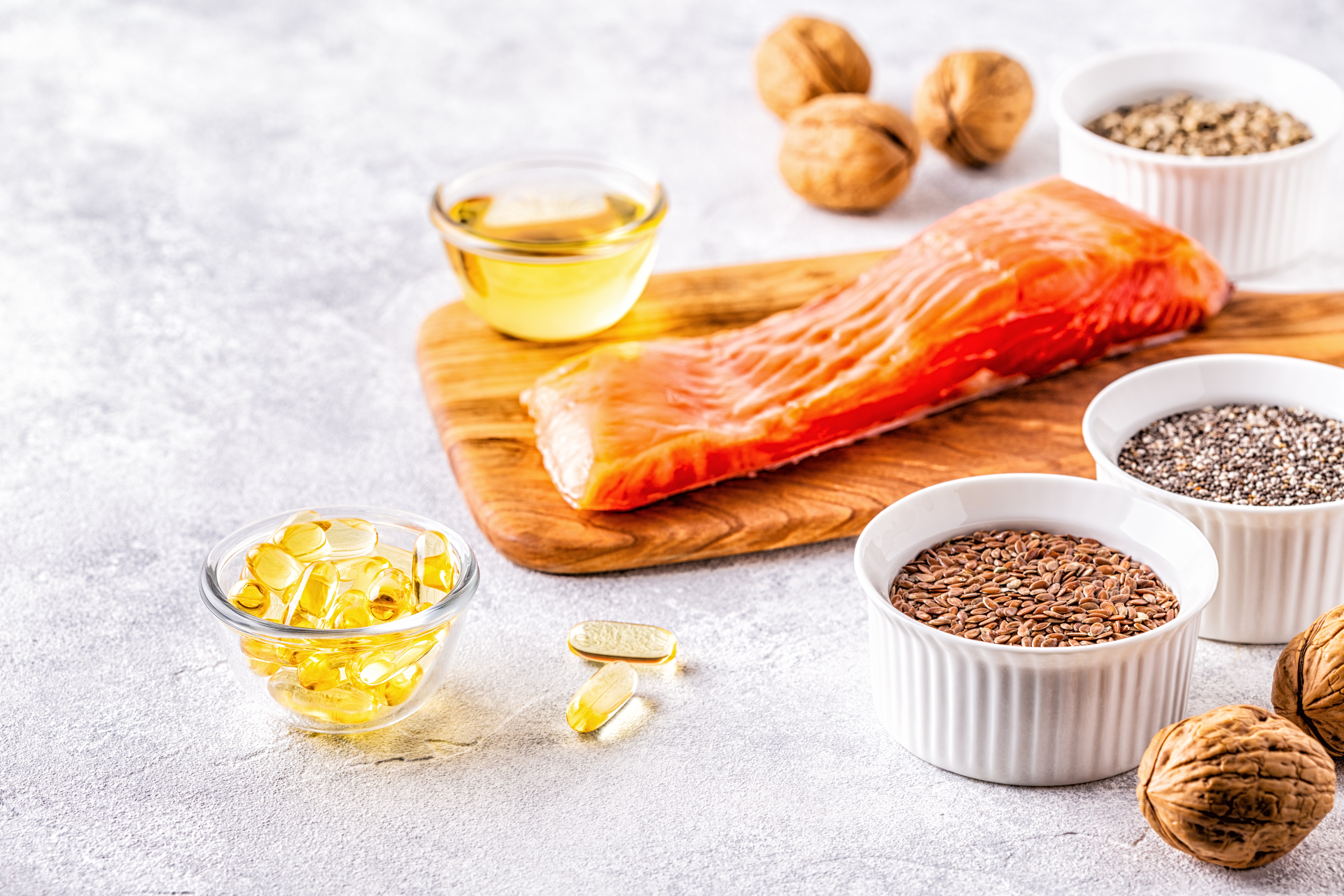
Omega-3 fatty acids are essential fats that play a crucial role in brain health. Found abundantly in fatty fish like salmon, mackerel, and sardines, these fats are integral to building and repairing brain cells. DHA, a type of omega-3, is a major structural component of the brain and retina, highlighting its importance in maintaining cognitive function and vision. Research indicates that a diet rich in omega-3s can enhance memory, improve mood, and protect against neurological disorders. The benefits of omega-3s extend beyond structural support. They also possess anti-inflammatory properties that can reduce brain inflammation, a factor linked to depression and Alzheimer's disease. Studies have shown that individuals with higher omega-3 intake have larger brain volumes in old age, suggesting a protective effect against brain shrinkage. For those who don't consume fish, plant-based sources like flaxseeds, chia seeds, and walnuts provide ALA, another form of omega-3 that the body can partially convert into DHA and EPA. Ensuring adequate omega-3 intake is a foundational step in supporting cognitive health.
2. Antioxidants: Defenders Against Oxidative Stress

Antioxidants are compounds that protect the brain from oxidative stress, a process that can damage cells and contribute to cognitive decline. Berries, such as blueberries, strawberries, and blackberries, are rich in flavonoids, a type of antioxidant known to improve brain function. These compounds enhance communication between brain cells, promote neurogenesis (the growth of new neurons), and improve plasticity, which is crucial for learning and memory. Vitamin E, another potent antioxidant found in nuts and seeds, plays a vital role in protecting cell membranes from oxidative damage. Studies have linked higher vitamin E intake with a reduced risk of Alzheimer's disease, highlighting its potential in preserving cognitive function. Additionally, dark chocolate, rich in flavonoids, caffeine, and theobromine, has been shown to boost brain function and mood. By incorporating a variety of antioxidant-rich foods into your diet, you can fortify your brain's defenses against oxidative stress and support long-term cognitive health.
3. B Vitamins: The Energizers of Brain Metabolism

B vitamins, including B6, B9 (folate), and B12, are essential for brain function and energy metabolism. These vitamins play a pivotal role in producing neurotransmitters, the chemical messengers that transmit signals in the brain. Folate, found in leafy greens, legumes, and citrus fruits, is crucial for DNA synthesis and repair, processes vital for maintaining brain health. A deficiency in folate can lead to elevated homocysteine levels, which are associated with cognitive decline and an increased risk of dementia. Vitamin B6, present in poultry, fish, and potatoes, assists in the production of neurotransmitters like serotonin, dopamine, and GABA, which regulate mood and cognitive function. Meanwhile, vitamin B12, found in animal products like meat, eggs, and dairy, is essential for maintaining the myelin sheath that protects nerve fibers. Low levels of B12 can result in memory loss and confusion, underscoring the importance of these vitamins in supporting brain health. Together, B vitamins act as energizers, ensuring that the brain functions efficiently and effectively.
4. Choline: The Memory Booster

Choline is a lesser-known but vital nutrient that plays a significant role in brain health. It is a precursor to acetylcholine, a neurotransmitter involved in memory, mood, and muscle control. Eggs, particularly the yolks, are one of the richest sources of choline, making them an excellent addition to a brain-boosting diet. Studies suggest that higher choline intake is associated with better cognitive performance and a lower risk of neurodegenerative diseases. Choline also contributes to the structural integrity of cell membranes, which is crucial for maintaining healthy brain cells. During pregnancy, adequate choline intake is essential for fetal brain development, highlighting its importance across the lifespan. While the body can produce some choline, dietary intake is necessary to meet the recommended levels. Incorporating choline-rich foods like eggs, liver, and soybeans can support memory and cognitive function, providing a natural boost to brain health.
5. Magnesium: The Calming Mineral
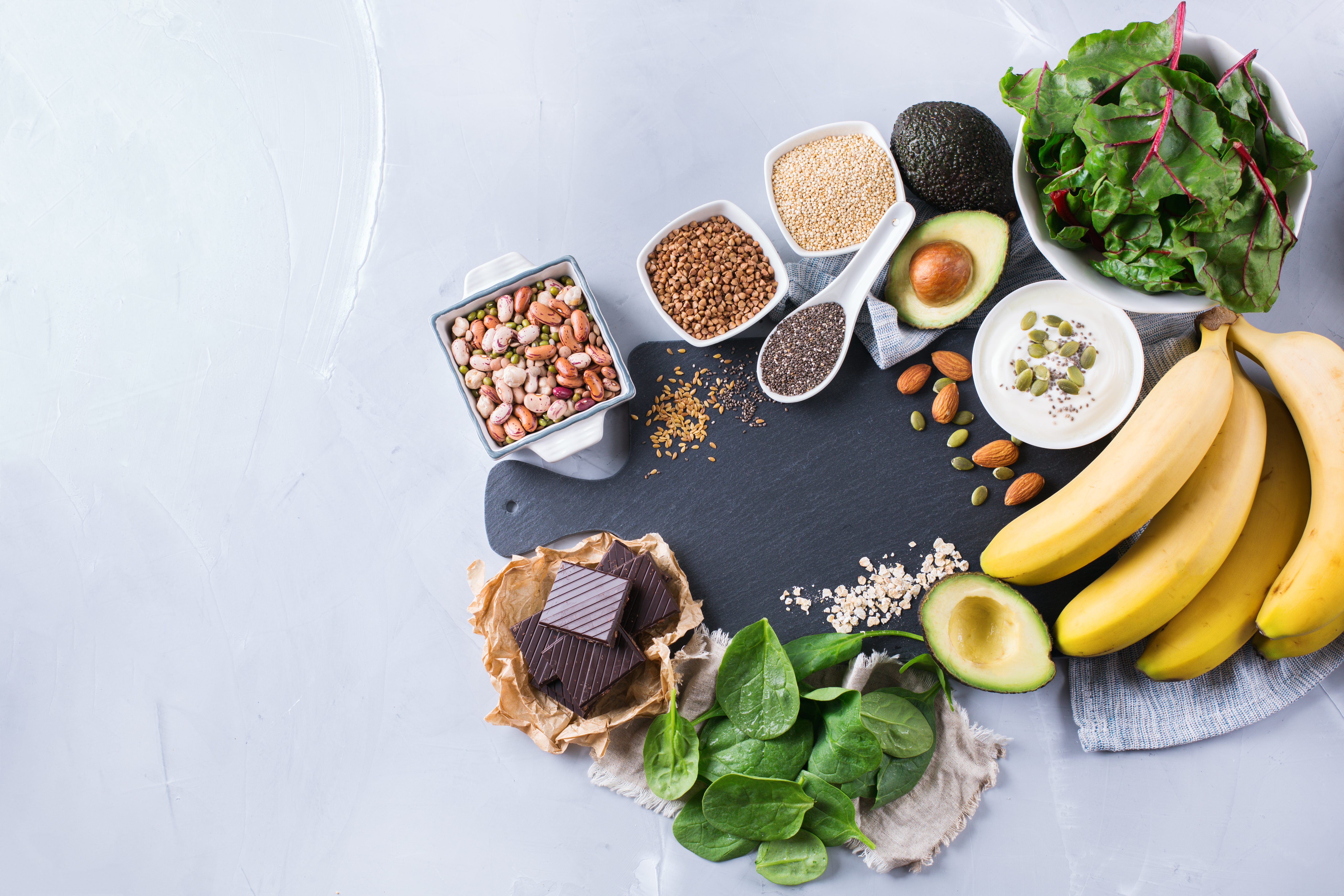
Magnesium is a mineral that plays a critical role in brain function and mood regulation. It is involved in over 300 biochemical reactions in the body, including those that support nerve transmission and muscle contraction. Magnesium acts as a natural relaxant, helping to calm the nervous system and reduce stress levels. Foods rich in magnesium, such as spinach, almonds, and dark chocolate, can help maintain a balanced mood and support cognitive function. Research has shown that magnesium deficiency is linked to an increased risk of depression, anxiety, and migraines. This mineral also plays a role in synaptic plasticity, the ability of synapses to strengthen or weaken over time, which is essential for learning and memory. By ensuring adequate magnesium intake, you can support a calm and focused mind, enhancing both cognitive performance and emotional well-being. Including magnesium-rich foods in your diet is a simple yet effective way to nurture brain health.
6. Zinc: The Cognitive Enhancer

Zinc is a trace element that is crucial for brain health and cognitive function. It is involved in neurotransmitter signaling, synaptic plasticity, and neurogenesis, all of which are essential for learning and memory. Zinc is abundant in foods like oysters, beef, and pumpkin seeds, making them excellent choices for those looking to boost their cognitive abilities. Studies have shown that zinc deficiency can impair brain function and contribute to mood disorders such as depression and anxiety. Zinc also plays a role in modulating the brain's response to stress, making it an important nutrient for mental resilience. It is involved in the regulation of the hypothalamic-pituitary-adrenal (HPA) axis, which controls the body's stress response. By supporting the HPA axis, zinc helps maintain a balanced mood and cognitive clarity. Ensuring adequate zinc intake through diet or supplementation can enhance cognitive performance and support overall brain health.
7. Iron: The Oxygen Carrier

Iron is an essential mineral that plays a vital role in brain function by facilitating oxygen transport and energy production. It is a key component of hemoglobin, the protein in red blood cells that carries oxygen from the lungs to the brain and other tissues. Foods rich in iron, such as red meat, lentils, and spinach, can help ensure adequate oxygen supply to the brain, supporting cognitive function and mental clarity. Iron deficiency is one of the most common nutritional deficiencies worldwide and is associated with cognitive impairments, particularly in children and adolescents. Inadequate iron levels can lead to fatigue, poor concentration, and memory problems. By incorporating iron-rich foods into your diet, you can support optimal brain function and prevent cognitive decline. For those who follow a plant-based diet, pairing iron-rich foods with vitamin C-rich foods can enhance iron absorption, ensuring that the brain receives the oxygen it needs to thrive.
8. Vitamin D: The Sunshine Vitamin
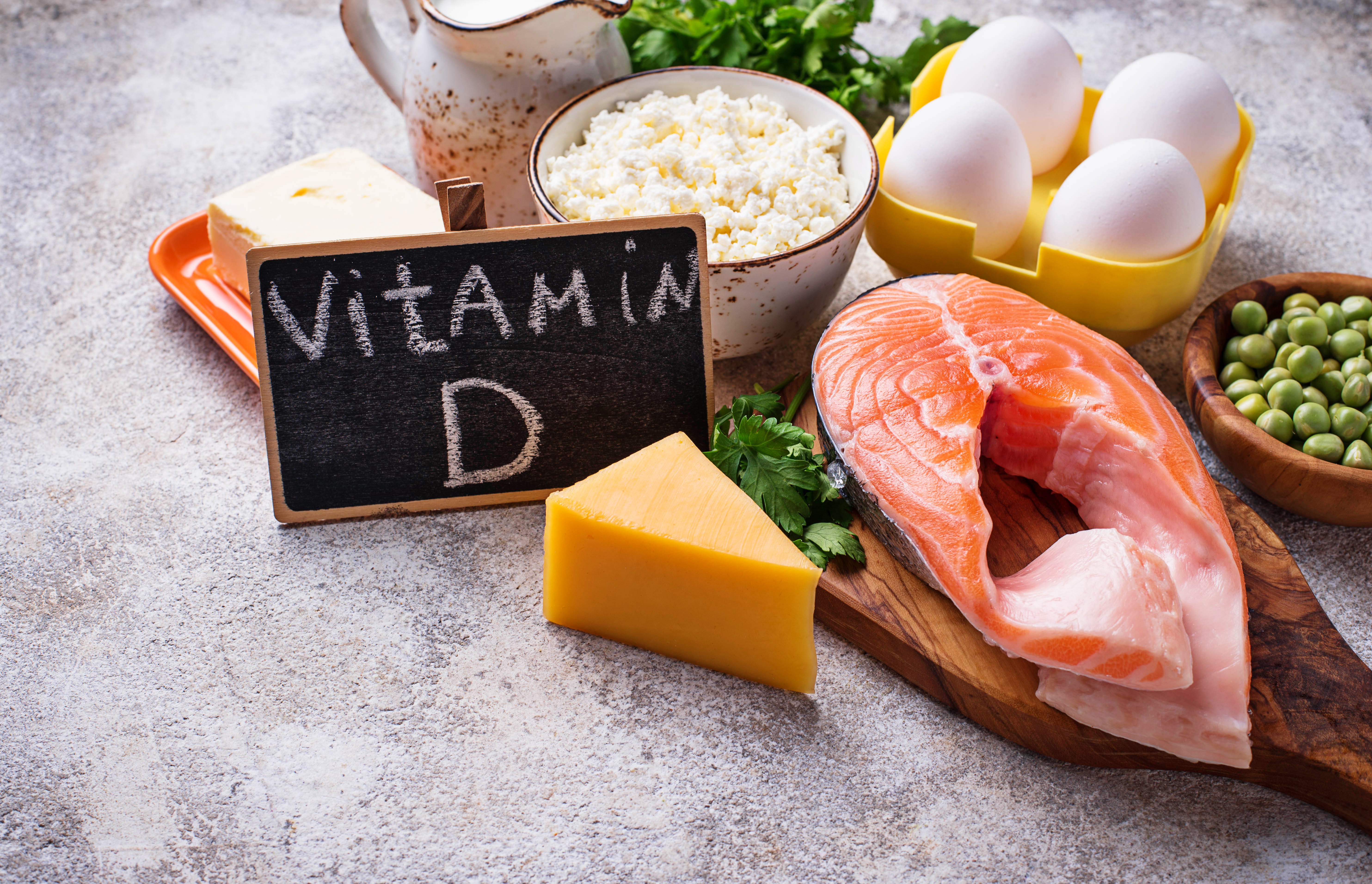
Vitamin D, often referred to as the "sunshine vitamin," plays a crucial role in brain health and cognitive function. It is involved in the regulation of calcium, which is essential for neurotransmitter release and synaptic function. Vitamin D receptors are present in areas of the brain involved in memory and cognition, highlighting its importance in maintaining mental clarity and focus. Sun exposure is the primary source of vitamin D, but it can also be obtained from foods like fatty fish, egg yolks, and fortified dairy products. Research has linked low vitamin D levels with an increased risk of cognitive decline and mood disorders such as depression. Adequate vitamin D intake is essential for supporting brain health, particularly in older adults who may be at risk of deficiency due to reduced sun exposure and dietary intake. By ensuring sufficient vitamin D levels through sun exposure, diet, or supplementation, you can support cognitive function and elevate your mood, contributing to overall brain health.
9. Curcumin: The Golden Spice

Curcumin, the active compound in turmeric, is a powerful antioxidant and anti-inflammatory agent that has garnered attention for its potential brain-boosting benefits. It crosses the blood-brain barrier, where it can exert its effects on brain health. Curcumin has been shown to increase levels of brain-derived neurotrophic factor (BDNF), a protein that supports the growth and survival of neurons, enhancing learning and memory. The anti-inflammatory properties of curcumin make it a promising candidate for reducing the risk of neurodegenerative diseases such as Alzheimer's. Studies suggest that curcumin can reduce amyloid plaques, a hallmark of Alzheimer's disease, and improve symptoms in individuals with mild cognitive impairment. Incorporating turmeric into your diet, whether through curries, smoothies, or supplements, can provide a natural boost to brain health and cognitive function.
10. L-Theanine: The Focus Enhancer
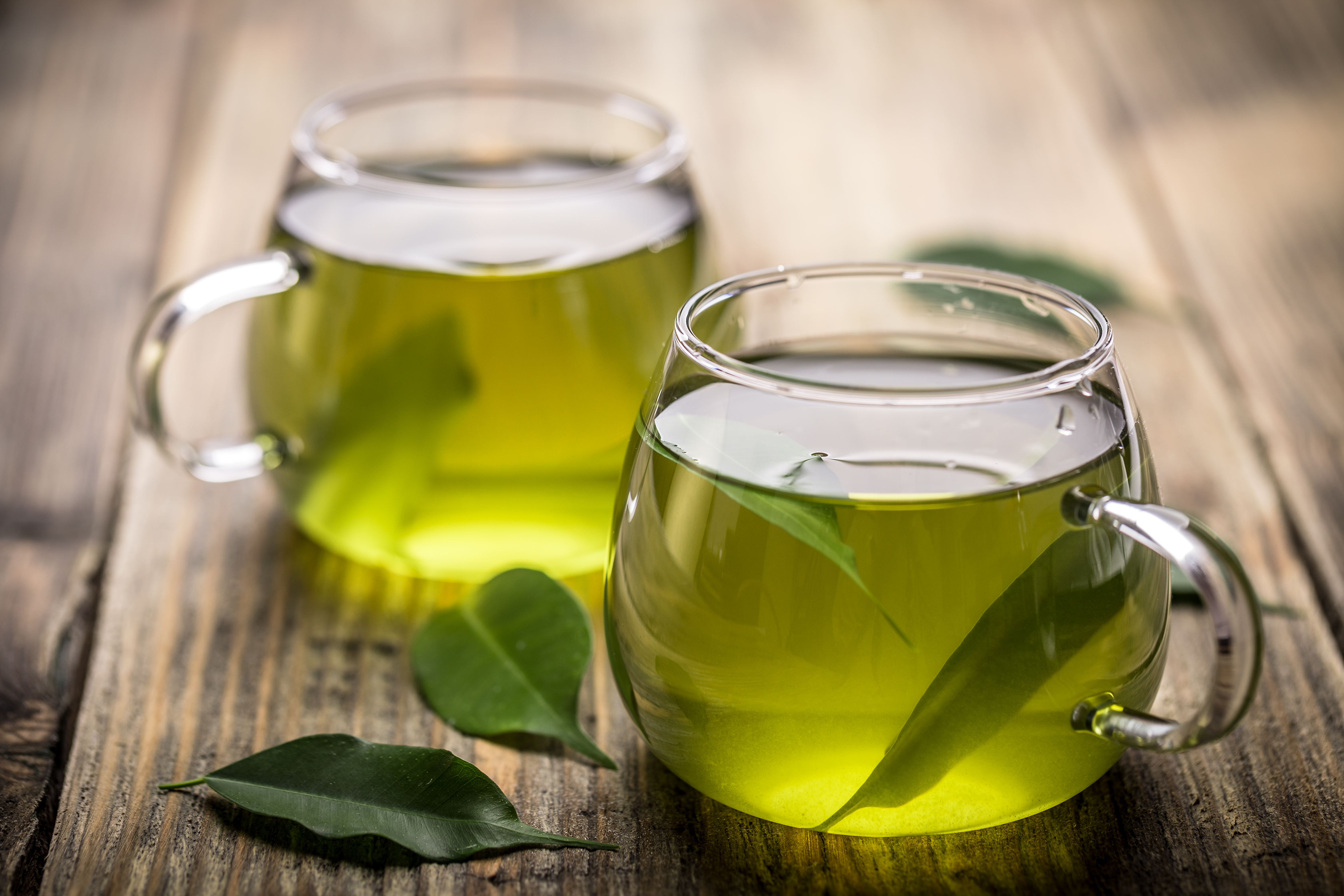
L-theanine is an amino acid found predominantly in tea leaves, particularly green tea. It is known for its calming effects, promoting relaxation without causing drowsiness. L-theanine increases the production of alpha waves in the brain, which are associated with a state of relaxed alertness and improved focus. This makes it an ideal nutrient for enhancing cognitive performance and reducing stress. In combination with caffeine, L-theanine has been shown to improve attention, memory, and reaction time, making it a popular choice for those seeking a mental boost. The synergistic effects of L-theanine and caffeine can enhance cognitive function while minimizing the jitteriness often associated with caffeine consumption. By incorporating green tea into your daily routine, you can harness the benefits of L-theanine to support mental clarity and focus.
11. Probiotics: The Gut-Brain Connection

Probiotics, the beneficial bacteria found in fermented foods and supplements, play a significant role in the gut-brain axis, the bidirectional communication between the gut and the brain. A healthy gut microbiome is essential for producing neurotransmitters like serotonin, which regulates mood and cognitive function. Foods rich in probiotics, such as yogurt, kefir, sauerkraut, and kimchi, can support a balanced gut microbiome, enhancing brain health. Research has shown that probiotics can improve mood, reduce symptoms of anxiety and depression, and enhance cognitive performance. The gut-brain connection underscores the importance of maintaining a healthy gut for optimal brain function. By incorporating probiotic-rich foods into your diet, you can support mental health and cognitive clarity, highlighting the profound impact of gut health on brain health.
12. Polyphenols: The Brain Protectors

Polyphenols are a group of antioxidants found in plant-based foods that offer protective benefits for the brain. These compounds are abundant in fruits, vegetables, tea, coffee, and red wine, and have been shown to improve cognitive function and reduce the risk of neurodegenerative diseases. Polyphenols exert their effects by reducing inflammation, protecting against oxidative stress, and enhancing blood flow to the brain. Resveratrol, a polyphenol found in red wine and grapes, has been shown to improve memory and cognitive function in older adults. Similarly, the polyphenols in green tea, known as catechins, have been linked to improved brain function and reduced anxiety. By incorporating a variety of polyphenol-rich foods into your diet, you can support brain health and protect against cognitive decline, showcasing the power of plant-based nutrients.
13. Selenium: The Mood Stabilizer
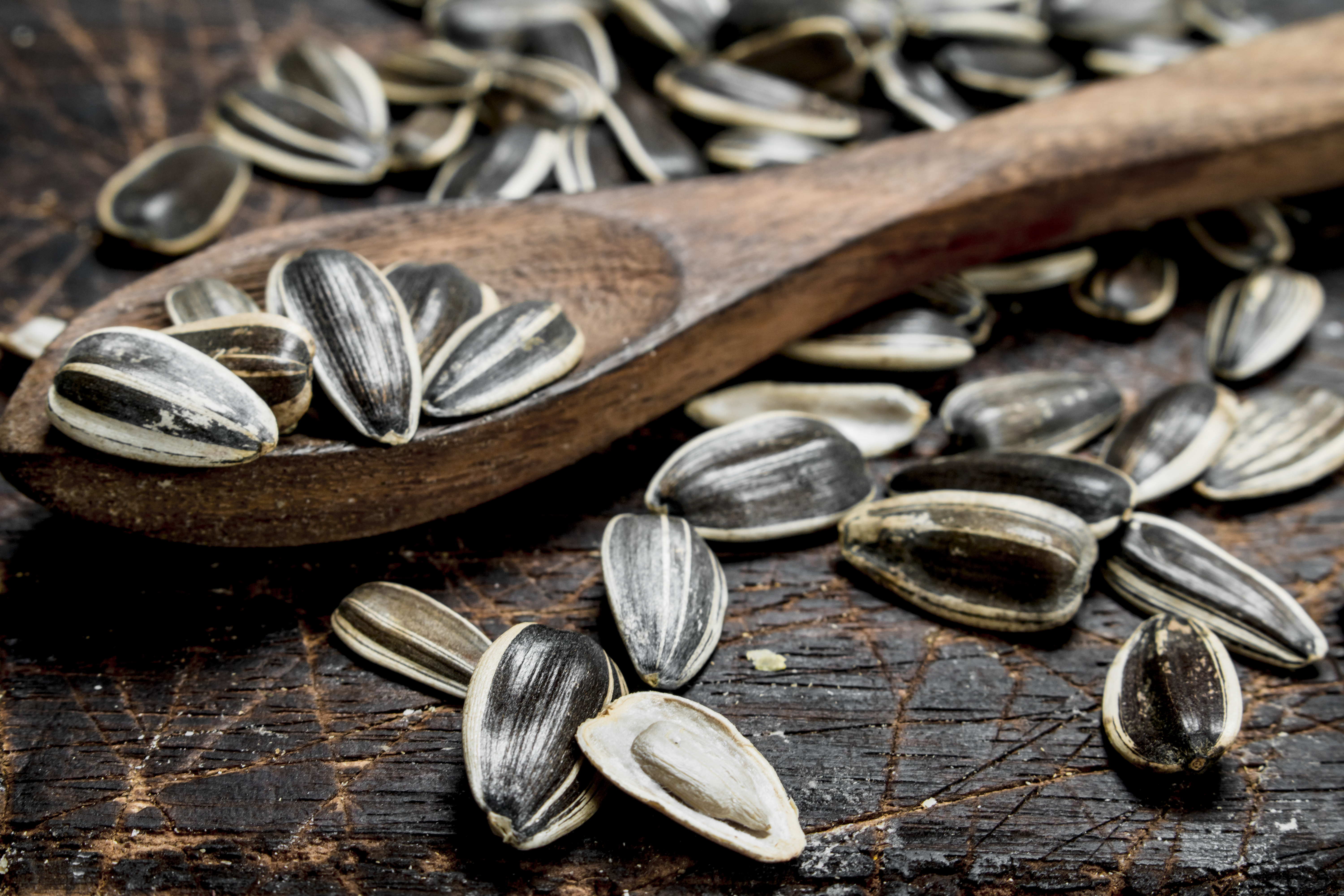
Selenium is a trace mineral with powerful antioxidant properties, helping protect the brain from oxidative stress and inflammation. Low selenium levels have been linked to poor mood, cognitive fog, and even a greater risk of depression. This essential nutrient supports the production of selenoproteins, which play a role in detoxification and maintaining brain cell integrity. Brazil nuts are one of the richest natural sources—just one nut provides over 100% of your daily selenium needs. Other good sources include sunflower seeds, fish, and whole grains. While too much selenium can be harmful, maintaining optimal levels supports emotional resilience, mental clarity, and long-term brain health.
14. CoQ10: The Brain's Energy Catalyst

Coenzyme Q10 (CoQ10) is a compound found in every cell that helps generate energy and reduce oxidative damage. In the brain—an energy-hungry organ—CoQ10 is crucial for mitochondrial function and protecting neurons from aging. As we age, natural CoQ10 production declines, making dietary sources and supplementation more important. Foods like organ meats, fatty fish, and peanuts contain small amounts. Supplementation has shown promise in supporting cognition, especially in neurodegenerative conditions like Parkinson’s. For sharper thinking and sustained energy, CoQ10 is a brain ally worth considering.
15. Acetyl-L-Carnitine (ALCAR): The Memory Reviver

Acetyl-L-carnitine is an amino acid derivative that plays a key role in mitochondrial energy metabolism and has neuroprotective benefits. ALCAR helps transport fatty acids into brain cell mitochondria, boosting energy production and mental stamina. It’s also known to support the production of acetylcholine, a neurotransmitter essential for memory and learning. Research has linked ALCAR with improved cognitive performance in older adults, particularly those with mild cognitive impairment. Found in meat and fish, or as a supplement, this nutrient offers potential for enhanced memory, focus, and even mood stability.
16. Quercetin: The Neuro-Guard

Quercetin is a flavonoid found in apples, onions, and berries, known for its antioxidant and anti-inflammatory effects. What makes quercetin stand out is its ability to cross the blood-brain barrier and protect neurons from oxidative damage. It may also enhance mitochondrial function in brain cells and reduce histamine activity—useful for brain fog linked to allergies. Studies suggest quercetin may help prevent neurodegenerative conditions and slow mental decline. By regularly consuming quercetin-rich foods, you're equipping your brain with a natural shield against age-related wear and tear.
17. Taurine: The Brain’s Calming Companion

Often associated with energy drinks, taurine is actually a calming amino acid that plays a major role in brain development and neurological health. It supports the formation of new brain cells, balances calcium signaling, and helps modulate neurotransmitters like GABA. Taurine is found in meat, seafood, and dairy, and supplementation is being studied for its potential in managing anxiety, depression, and neurodegenerative diseases. For those seeking mental calm and sharper focus, taurine may be an underappreciated ally.
18. Iodine: The Cognitive Spark Plug
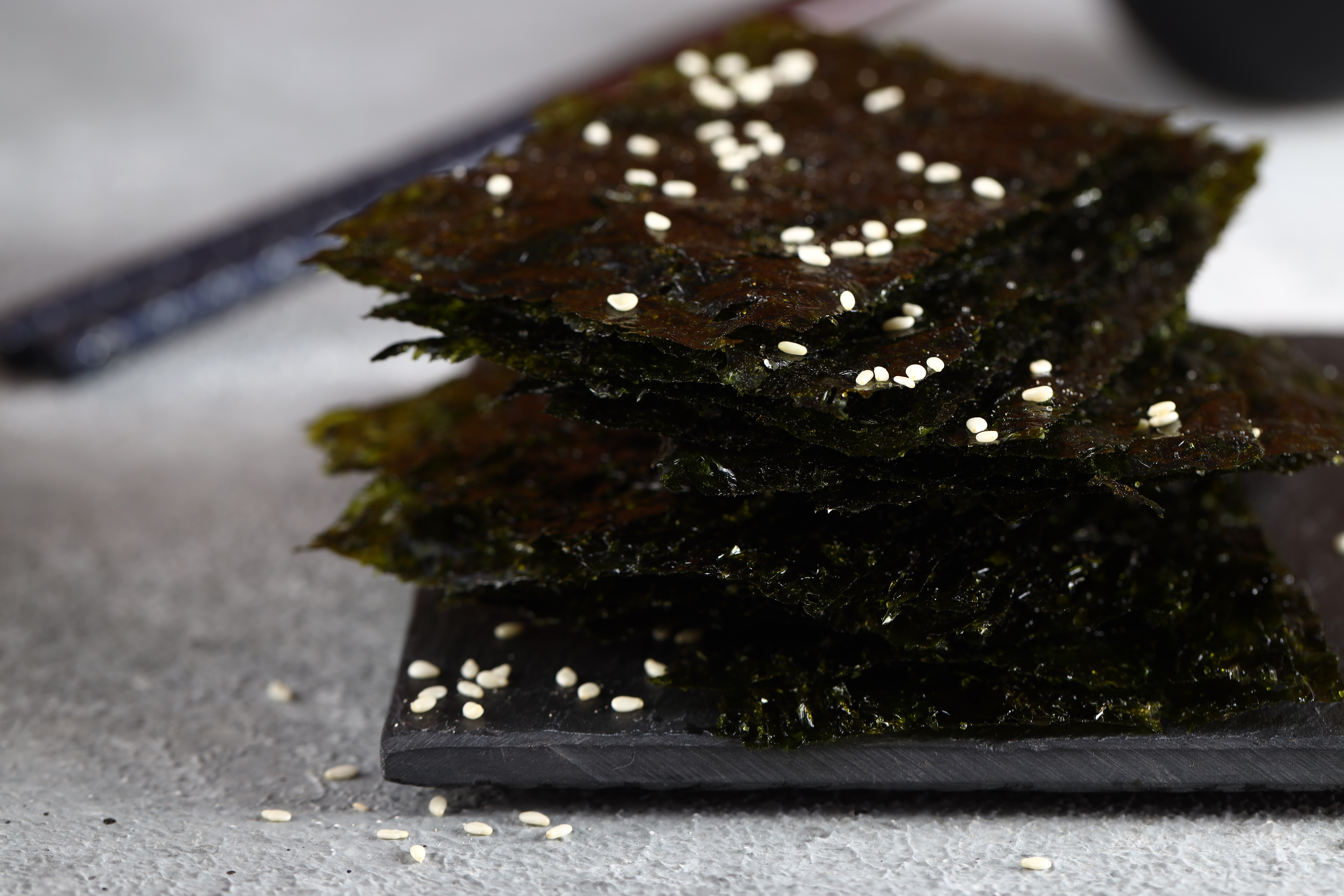
Iodine is vital for the production of thyroid hormones, which are directly linked to brain development and energy metabolism. In fact, iodine deficiency is the leading preventable cause of intellectual disability worldwide. Adequate iodine intake is especially critical during pregnancy and early childhood, but it also supports memory, energy, and mood regulation throughout life. Seaweed, iodized salt, dairy, and seafood are excellent sources. A well-functioning thyroid means a well-fueled brain.
19. Tyrosine: The Focus-Enhancing Amino Acid
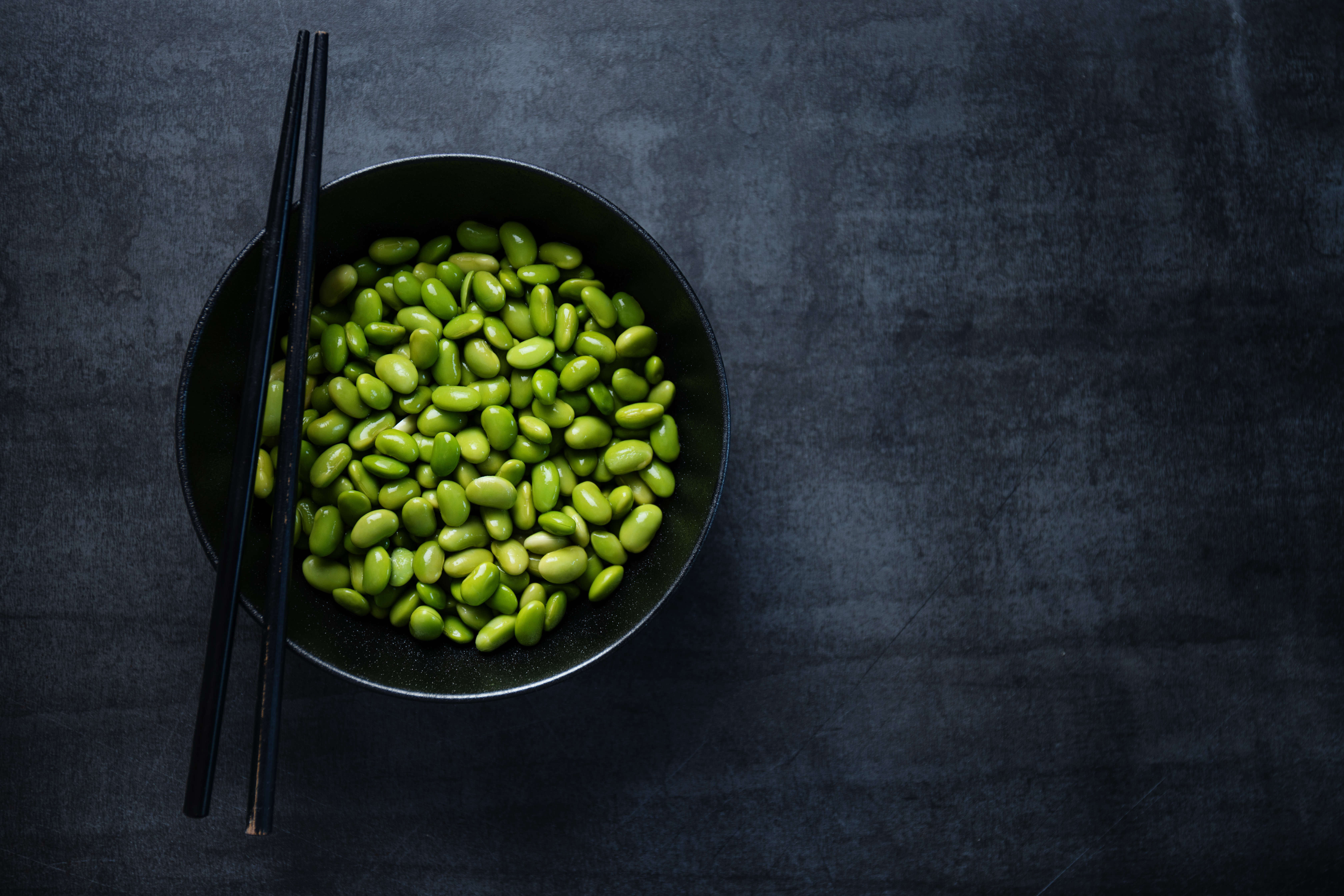
Tyrosine is a precursor to key neurotransmitters like dopamine, norepinephrine, and epinephrine, all of which influence mood, alertness, and motivation. Under stress, the brain uses more tyrosine, and supplementation has been shown to improve mental performance during demanding tasks. Found in eggs, poultry, cheese, and soy products, tyrosine helps you stay sharp and mentally resilient during times of cognitive overload. Whether you’re tackling a big presentation or pulling a late-night study session, tyrosine can support sharper focus and better stress handling.
20. Creatine: The Brain’s Backup Battery

Creatine isn't just for athletes—it's also a critical brain nutrient. It helps supply quick energy to brain cells and supports mental clarity, especially under conditions of fatigue or sleep deprivation. Creatine may improve memory, processing speed, and even mood. It’s found naturally in red meat and seafood, but vegetarians and vegans may benefit from supplementation. By improving brain energy metabolism, creatine acts as a powerful cognitive enhancer—particularly useful during high-demand mental tasks.
21. Phosphatidylserine: The Memory Messenger
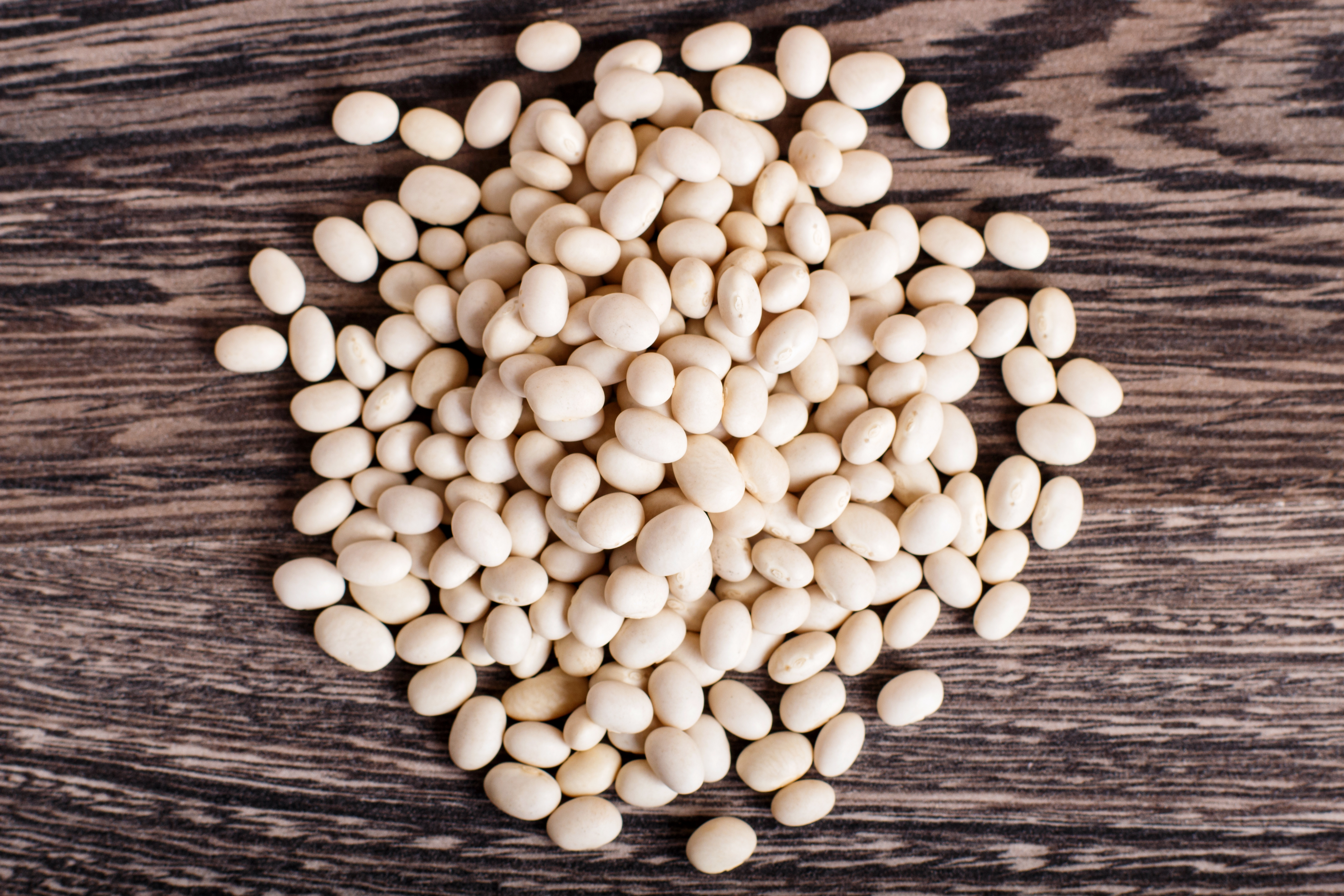
Phosphatidylserine is a phospholipid that’s found in high concentrations in brain cell membranes. It plays a key role in cell signaling, synaptic function, and memory formation. Clinical trials suggest that phosphatidylserine supplementation can improve attention, memory, and mood—especially in aging adults. Though it's naturally found in small amounts in foods like soy, white beans, and organ meats, it's more commonly taken as a supplement to support mental performance and protect against cognitive decline.
22. Manganese: The Neuro-Nutrient
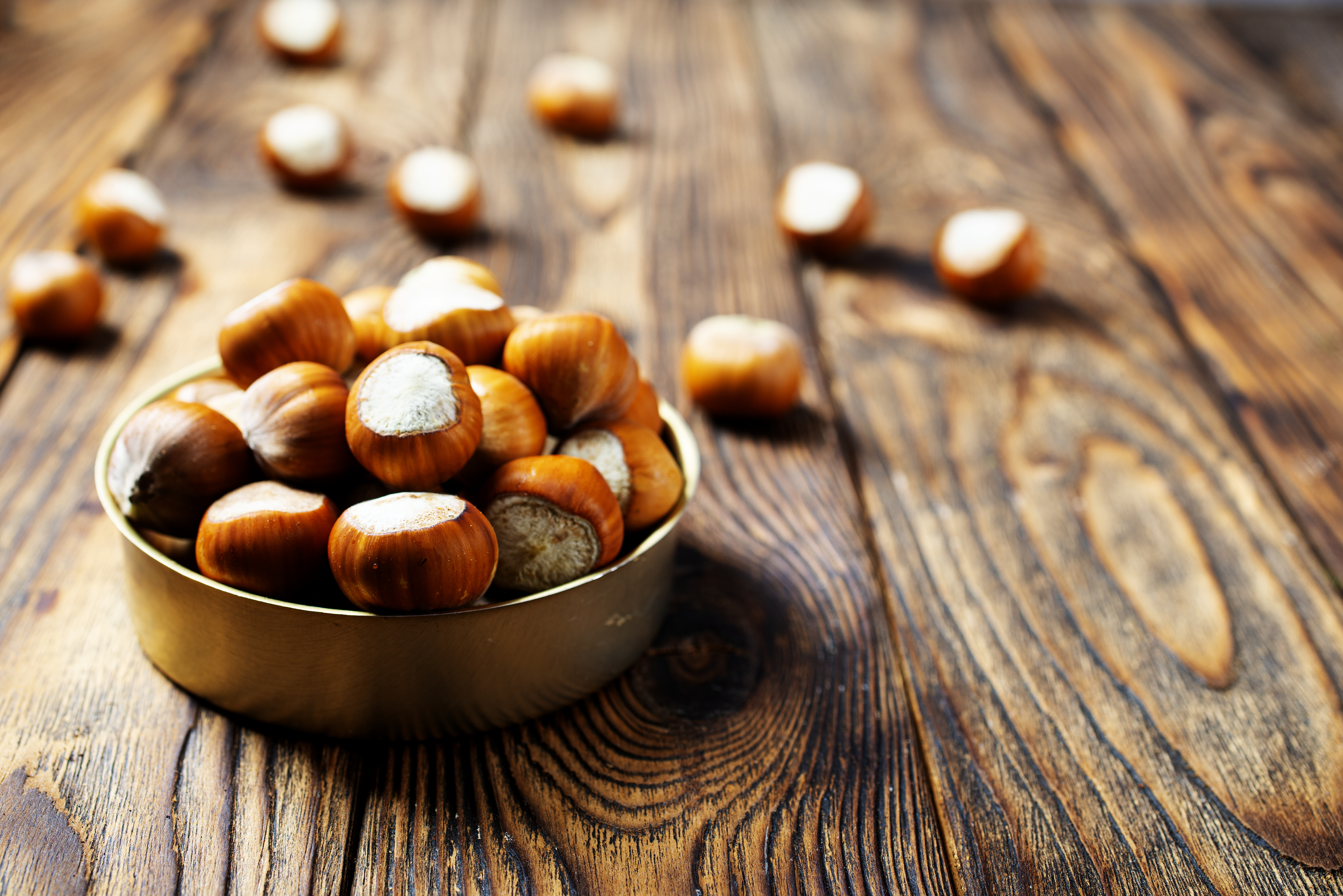
Manganese is a trace mineral that supports the synthesis of neurotransmitters and protects neurons from oxidative damage. It acts as a cofactor for antioxidant enzymes like manganese superoxide dismutase (MnSOD), which defend the brain from free radicals. Found in whole grains, legumes, nuts, and leafy greens, manganese supports mood, memory, and cognitive processing speed. While deficiency is rare, maintaining optimal levels contributes to long-term brain resilience and function.
Elevating Your Diet and Brainpower

Each nutrient, from omega-3 fatty acids to polyphenols, plays a unique and vital role in supporting cognitive function, mood regulation, and overall brain health. By understanding and incorporating these nutrients into your daily diet, you can turbocharge your brainpower and elevate your diet to new heights. The interconnectedness of these nutrients highlights the importance of a holistic approach to nutrition. By embracing a varied diet rich in these brain-boosting nutrients, you can support mental clarity, enhance memory, and protect against cognitive decline. As you make informed dietary choices, remember that nourishing your brain is an investment in your future, empowering you to live a vibrant and cognitively enriched life.